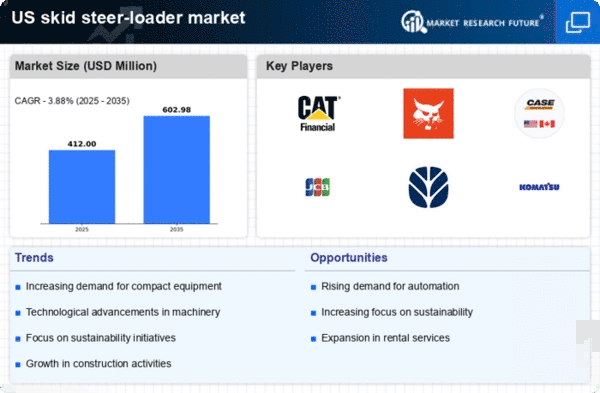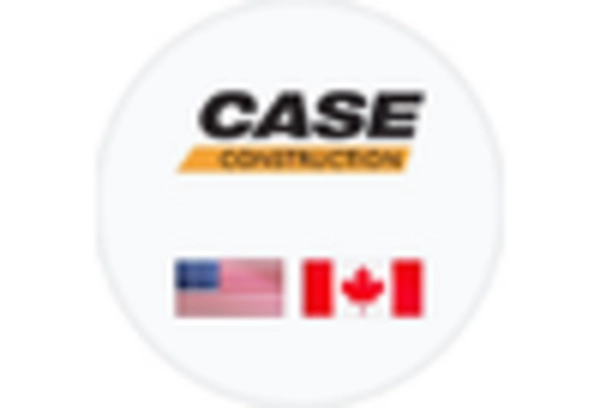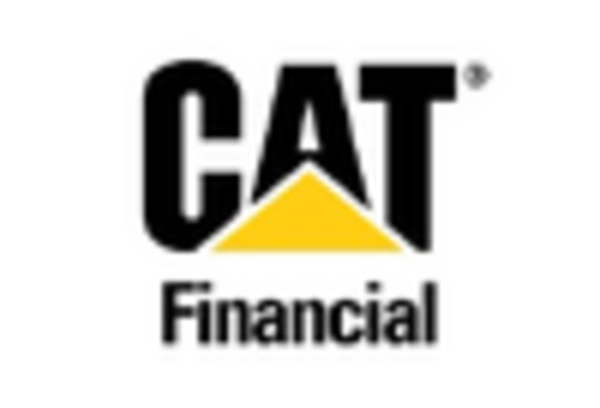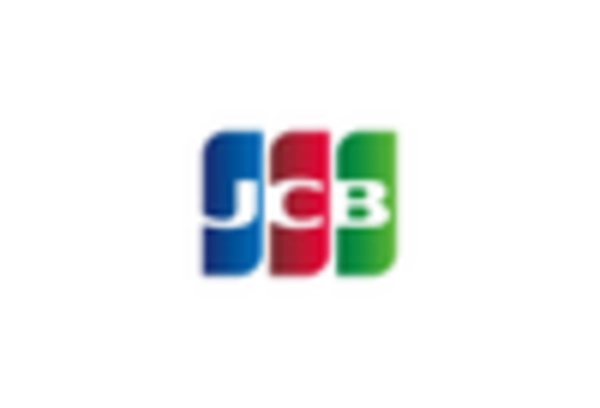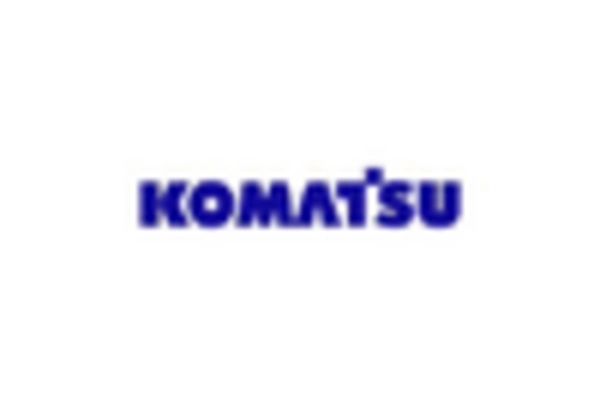Labor Shortages
Labor shortages in the construction industry are becoming a pressing issue in the United States, which may positively impact the skid steer-loader market. With a declining workforce and increasing project demands, contractors are turning to machinery to compensate for the lack of skilled labor. Skid steer-loaders, with their ease of operation and multifunctionality, are particularly attractive to contractors looking to maximize productivity with fewer workers. Recent statistics suggest that the construction sector faces a labor shortage of approximately 400,000 workers, prompting a shift towards mechanization. This trend is likely to drive the skid steer-loader market as companies seek efficient solutions to address labor challenges.
Rising Urbanization
The ongoing trend of urbanization in the United States is a significant driver for the skid steer-loader market. As cities expand and infrastructure projects increase, the demand for efficient construction equipment rises. Skid steer-loaders, known for their versatility and compact size, are particularly suited for urban environments where space is limited. According to recent data, urban areas are projected to grow by approximately 2.5% annually, leading to a heightened need for construction and landscaping services. This growth in urbanization is likely to propel the skid steer-loader market, as contractors seek reliable machinery to meet the demands of urban development.
Infrastructure Investment
The United States government has been focusing on infrastructure investment, which is likely to bolster the skid steer-loader market. With initiatives aimed at repairing and upgrading roads, bridges, and public facilities, the construction sector is expected to experience a surge in activity. Recent reports indicate that federal and state funding for infrastructure projects could reach $1 trillion over the next decade. This influx of capital is anticipated to drive demand for skid steer-loaders, as they are essential for various tasks, including excavation, grading, and material handling. Consequently, the skid steer-loader market stands to benefit from this increased investment in infrastructure.
Technological Integration
The integration of advanced technologies into construction equipment is a key driver for the skid steer-loader market. Innovations such as telematics, automation, and enhanced safety features are becoming increasingly prevalent. These technologies not only improve operational efficiency but also enhance safety and reduce operational costs. For instance, telematics systems can provide real-time data on equipment performance, leading to better maintenance practices. As the construction industry embraces these technological advancements, the skid steer-loader market is likely to see a rise in demand for machines equipped with these features, appealing to contractors seeking to optimize their operations.
Growing Landscaping Sector
The landscaping sector in the United States is experiencing notable growth, which will positively influence the skid steer-loader market. As residential and commercial property owners increasingly invest in outdoor spaces, the demand for landscaping services is on the rise. Skid steer-loaders are essential tools for landscaping projects, capable of performing tasks such as grading, soil preparation, and material transport. Market data indicates that the landscaping industry is projected to grow at a CAGR of 5% over the next five years. This growth is expected to drive demand for skid steer-loaders, as landscaping companies seek efficient and versatile equipment to meet client needs.


